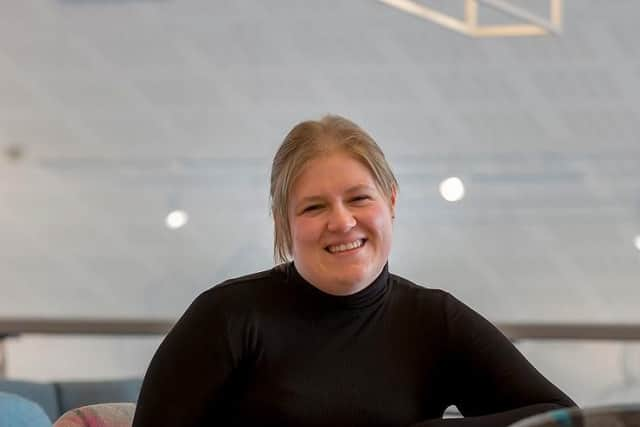Sunderland student engineering great future and encouraging other girls to do the same


Bethany Harrod, a student at the University of Sunderland, has spoken out about her dreams as part of 'Introduce a Girl to Engineering Day'.
February 21 is the day aimed at encouraging girls and women into STEM subjects.


Advertisement
Hide AdAdvertisement
Hide AdTen years ago, Bethany was the girl at school who liked maths, now she is preparing to graduate from university with a degree in mechanical engineering.
Bethany, 22, is among an increasing number of teenage girls and young women opting to take the STEM – science, technology, engineering and mathematics – route into a high-paying career.
She, like so many of her contemporaries, is keen to bust the myth that women and engineering are an unhappy coupling.
Bethany said: "I guess, like a lot of people, my preconceptions of engineering were visions of men in overalls, covered in oil.
Advertisement
Hide AdAdvertisement
Hide Ad"Of course, the reality is very different. I have worn the odd hard-hat in my time, but there are so many different avenues that a career in engineering can take you down. It’s an incredibly exciting and varied career."
Bethany, from Carrville in Durham, who studied maths, chemistry, and media at A Level, said a year of industry experience has proved a huge bonus, landing Bethany a dream job with a multinational engineering company after she graduates in the summer.
Traditionally a male-dominated industry, the engineering sector is starting to address the gender imbalance to get more women into engineering roles.
Women in STEM are generally underrepresented, but this is particularly apparent in engineering. In 2018, just 12% of the engineering workforce was female, according to the EngineeringUK's the state of engineering report.
Advertisement
Hide AdAdvertisement
Hide AdThe University of Sunderland is leading the way in helping students like Bethany successfully complete engineering programmes, she is currently captain of Formula Student, the university's racing team, which competes against 130 other international universities and design and manufacture their own single seat car.
Bethany surprised her career advisors when, still at school, she expressed an interest in becoming an engineer.
She said: "I was just 13 or 14 at the time. I don’t really think they knew what to say. Even today the stereotype still exists.
"Yes, I sometimes wear overalls, but I could equally follow a career in teaching maths or physics as I could in the automotive sector.
Advertisement
Hide AdAdvertisement
Hide Ad"I spend a lot more time sitting at desks, doing mathematics, than I do getting covered in oil. I think we need to move away from the traditional way of thinking and make people aware this is a path with a lot of very different opportunities."
Dean of the Faculty of Technology at the University of Sunderland, Professor Alastair Irons, said: "The increase in girls studying STEM subjects is a trend we are keen to see continue – and accelerate.
"Through our work at the University and with our industry partners I’m confident we can address the current shortage. We have a series of interventions underway to challenge perceptions and address the gender imbalance.
"We’re beginning this activity before Year 9, encouraging girls to see the opportunities open to them if they choose computing and digital options at school.
Advertisement
Hide AdAdvertisement
Hide Ad"Then, as they progress towards higher education, we’re keeping the conversation open, hosting women-only university open events, giving female students the option of a guaranteed female personal tutor in their first year, giving students access to female industry mentors and offering post-grad programmes for women returning from a career break. We’re trying lots of different approaches – we have to rewrite the rulebook."